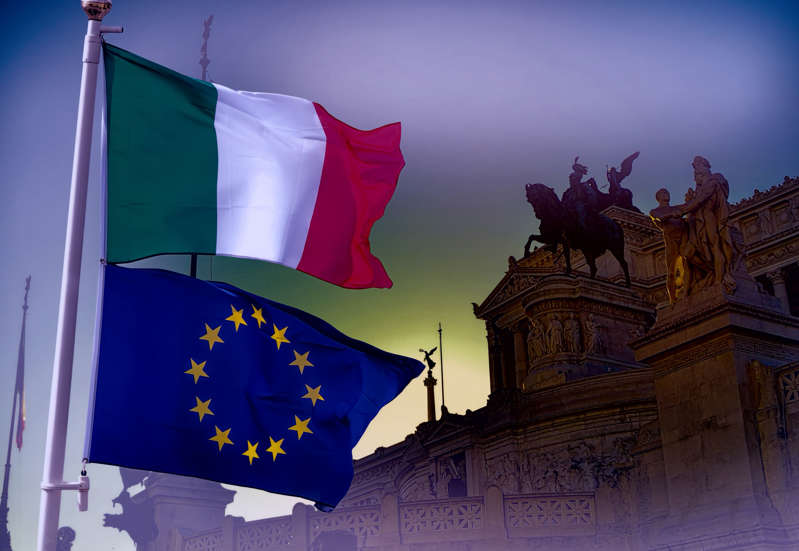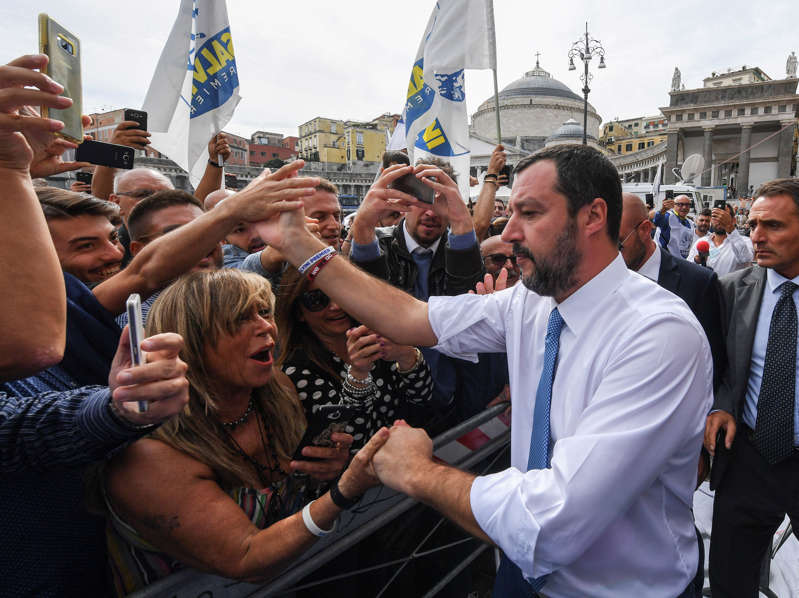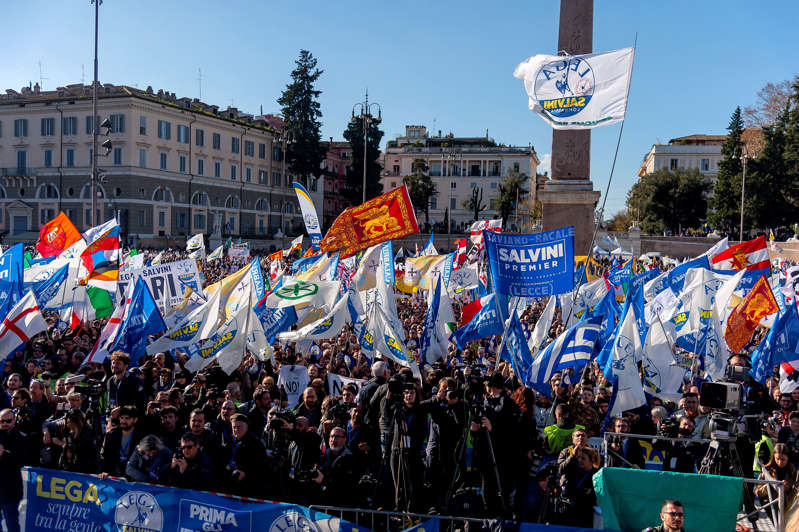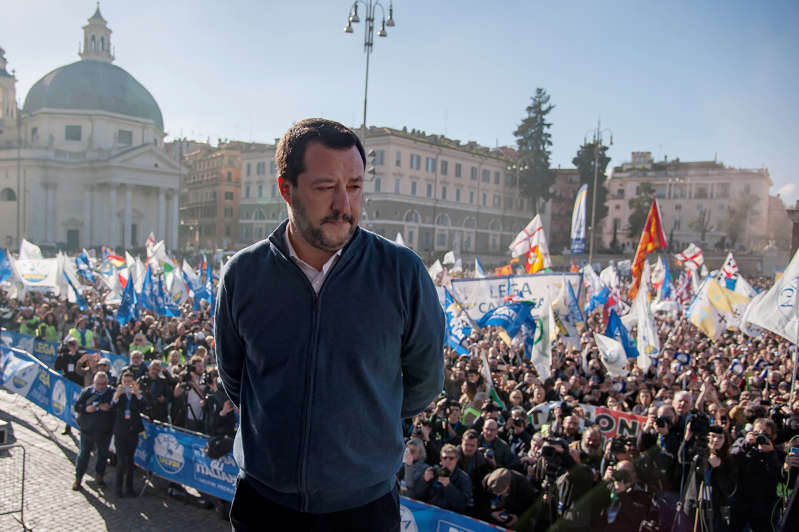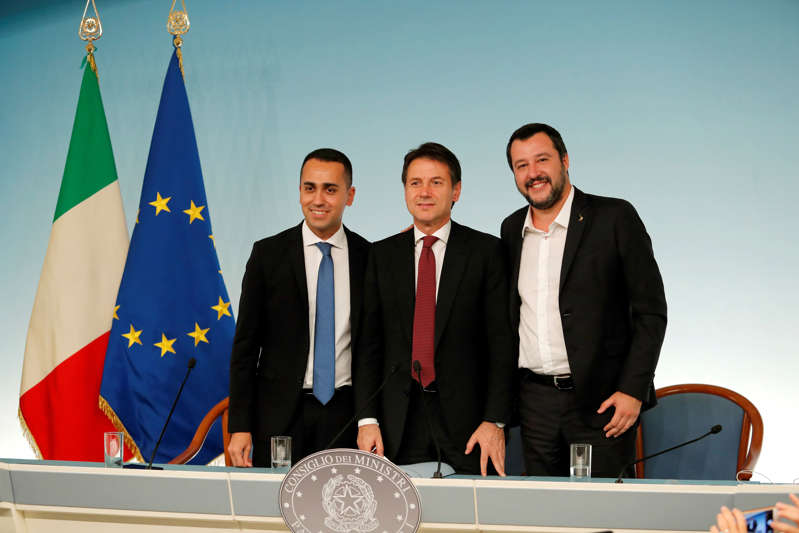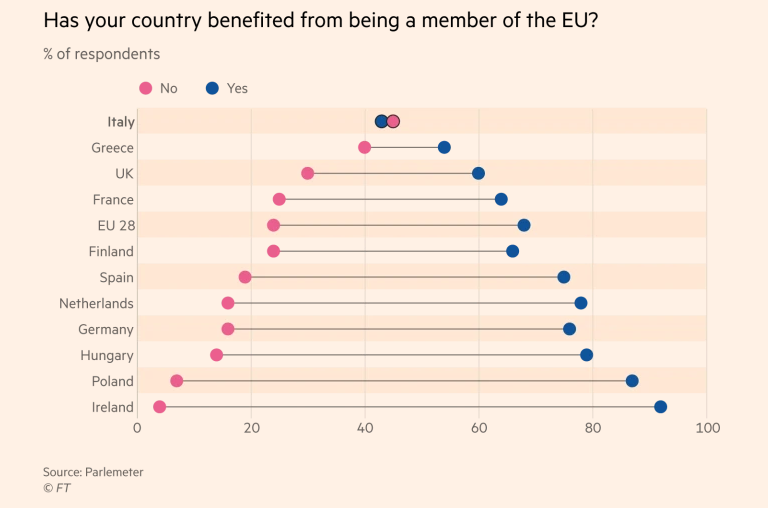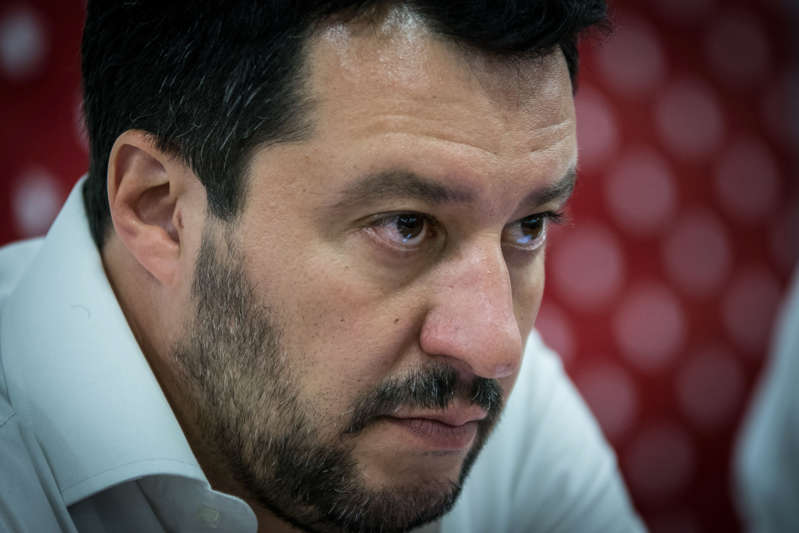(Part 2)
A strong result in the European elections would see Mr Salvini solidify his party’s new-found status as the dominant force on Italy’s political right, a position which had been occupied by Silvio Berlusconi’s Forza Italia for two decades. It would also raise the prospect, if Mr Salvini is emboldened enough to take Italy back to the polls, of an avowed Eurosceptic taking power in a large eurozone member for the first time in the single currency’s history.
Susanna Ceccardi, the 31-year-old League mayor of the small Tuscan town of Cascina near Pisa, is representative of a generation of young Italian politicians who have taken a more hostile stance towards Brussels as a means of protecting what she sees as “Italian values”. While an earlier generation of Italian rightwing politicians were likely to embrace openness with Europe, Ms Ceccardi, who was just 12 when the euro was launched in 1999, says she and her supporters feel little affinity with the modern EU.
“I feel European from the point of view of history, but I do not feel European from an administrative and management point of view, because it is a Europe that contradicts itself and its values,” she says. “Any citizen who hears the question of identity, does not want to suddenly see the historical centres full of Islamic veils, schools where you cannot eat pork . . . this is far from our culture. That is why people feel far from the EU, because it does not defend the values of the common European people, of our people.”
Ms Ceccardi argues that criticism of Brussels has allowed Mr Salvini to win a national audience. Yet antipathy towards Brussels is not exclusive to Italy’s hard right. Within the Five Star Movement, a party made up of eclectic ideological positions, some believe the euro has contributed to an economic status quo in Italy that has failed its youth.
Some of the party’s leading figures, including its 32-year-old leader Luigi Di Maio, are of the generation of Italians that have struggled with high youth unemployment and a perceived lack of opportunity. This cohort came of age at a time when freedom of movement allowed them to work across Europe, meaning that Italy’s membership provided both an escape from joblessness at home but also a reminder of the country’s economic failings.
Mr Di Maio, joint deputy prime minister in the coalition with Mr Salvini, is less vocally aggressive towards Brussels, but insists that his party’s election promises — including higher welfare payments to the poor — must be introduced whether Brussels likes it or not.
Growing up in Italy’s south where a fifth of the population is out of work, he saw many of his friends forced to leave to find employment abroad. “A lot of my friends went to London to New York, Berlin or Frankfurt to work,” he says. “There was a difference between those who were waiters in my area, like I was, and those who were waiters in London,” he says. “They could make a career while I could not”.
Mr Messori argues that the rise of Euroscepticism has been driven by the failure of the Italian economy to modernise over decades. The resulting economic stagnation has prompted politicians from both the left and right to attribute blame outside the country.
“In the 1960s small Italian firms were able to imitate innovation performed by other countries, as these were mostly to do with physical machinery. By the start of the 1990s global innovation became based on intangible assets and our small firms were unable to adapt,” he says. “This is not the fault of the euro or the EU but to different degrees centrist politicians started to blame Europe, and from this point the populist view had an open door.”
While many are dissatisfied by the country’s lack of economic growth, the increased hostility towards Brussels has not translated into a desire to leave the single currency — the extreme outcome most feared by financial markets.
While almost half of Italians do not believe that EU membership has benefited the country, 59 per cent support its membership of the single currency, according to Eurobarometer.
© FT Click to enlarge
Mr Salvini and Mr Di Maio have switched from past statements raising questions about the euro to steadfastly committing to keeping the country in the currency union.
To convert disillusionment towards Europe into a major electoral breakthrough Mr Salvini will have to be careful that his hostile rhetoric towards Brussels does not lose him the support of small Northern businesses — his traditional power base. He has recently faced criticism from Italy’s business lobby for the uncertainty caused by the government’s budget plans.
Older Italians, meanwhile, remember what life was like before the country joined the single market in a way that perhaps does not always resonate with younger generations.
Antonio Nesti, a 74 year-old furniture maker in Cascina, says he remembers having to queue for hours at European borders to make deliveries before Italy was part of the single market. He, like other small exporters, says any disruption to this would cause huge damage to his business.
“I think that Italians who work, and want to continue working, do not like the politics the government is doing now with this tug of war with Europe,” Mr Nesti says.
Additional reporting by Davide Ghiglione in Rome
Matteo Salvini: Italy’s de facto PM sets political agenda
© Getty ROME, ITALY - 2016/05/31: Matteo Salvini during the presentation of his book in Rome. Presentation of Matteo Salvini book 'Secondo MAtteo' and Daniela Santanchè 'Sono una donna, sono la santa.' The present leader of the' Lega Nord', Matteo Salvini. (Photo by Andrea Ronchini/Pacific Press/LightRocket via Getty Images)
Matteo Salvini might be Italy’s interior minister and head of the coalition government’s junior partner but to many Italians the League leader, who dominates the domestic political agenda, is de facto prime minister.
One opinion poll conducted by La Repubblica newspaper in November found that 58 per cent of respondents believed that Mr Salvini was the true head of the coalition government, compared with just 16 per cent for the actual prime minister Giuseppe Conte.
Luigi Di Maio, whose Five Star Movement entered into the so-called “government of change” with Mr Salvini’s League with a far higher share of the vote, was seen as the real leader of the coalition by just 14 per cent of respondents.
Mr Salvini has combined a natural ability to suck up the political oxygen in Italy with a powerful social media operation that has gained him 3.3m followers on Facebook, 1m more than France’s Emmanuel Macron.
After coming under attack by charities and figures within the Catholic Church for his harsh stance against migration, he has used social media to cultivate a softer image to broaden his appeal. His daily posts will often switch between highlighting crimes committed by a migrant in Italy to a photo of the dessert or pasta he is eating, addressing followers as “friends”.
He recently appeared on a reality television programme where he took charge of a class of young school children. A beaming Mr Salvini explained his political ideas to the pupils, writing “
sovranismo” in chalk letters on a blackboard and sharing his thoughts on the EU.
“Europe is a like a class with 27 students,” he told the children. “In this class you discuss things, like in Europe we discuss things, but then the way you do your homework, what subjects you focus on . . . is up to you”.

